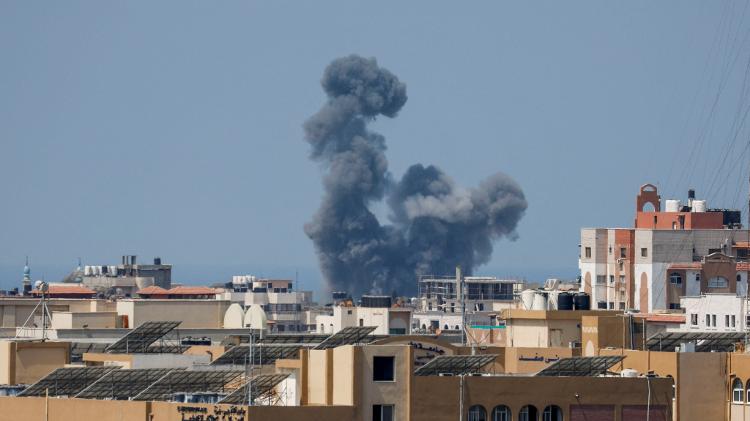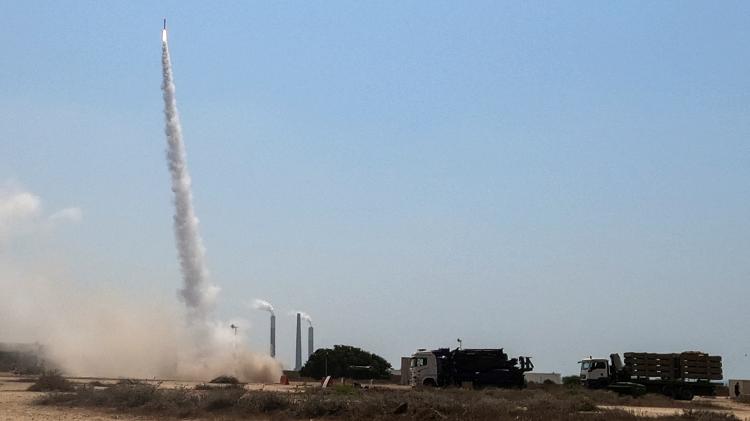Israeli warplanes bombed targets in Gaza this morning after escalating tensions in the region with airstrikes that killed at least 11 people, including the leader of the Islamic Jihad militia.
Palestinian militants reacted by firing several shells at southern Israel. The conflict continued throughout the night, raising fears of a new war between the two sides.
The latest wave of violence in Gaza began with the death of Taisir al-Jabari, the leader of Islamic Jihad in the West Bank, during Israel’s month-long operations. Earlier this week, Israel blocked roads in Gaza and sent reinforcements to its borders.
Jabari has led the Islamic Jihad since his predecessor was killed in another Israeli airstrike in 2019, which again resulted in a wave of conflict.
Hundreds attended the funeral for the Islamist leader and other victims of the bombings, including a five-year-old girl.
An Israeli military spokesman said the attacks that killed Jabari came in response to “imminent threats” from two squadrons of militants armed with anti-tank missiles. He said he was designated as a target because he was responsible for “multiple attacks” on Israel.
Israeli officials reported that about 190 shells were fired at Israel in the past few hours, the vast majority of which were blocked by the Iron Dome defense system or hit in inappropriate places. Warning sirens sounded in many suburbs of Tel Aviv on Friday.
Israeli attacks on terrorist targets continued on Saturday morning. The Israeli Defense said it is ready for a week of new operations against Palestinian militants.
Interim Prime Minister Challenge
Israeli Prime Minister Yair Lapid said on Friday that his country launched the attack in response to “concrete threats”.
“This government adopts a policy of zero tolerance for any attempt to attack Israeli territory from Gaza,” Lapid said. “Israel will not stop as long as there are those who try to harm its citizens,” he said.
“Israel has no interest in a wider conflict in Gaza, but it will not back down if that happens,” he said.
The violence is also a test for Lapid, who took over as interim prime minister ahead of the November elections, which he hopes to stay in office.
The centrist politician, a former television host and writer, has some diplomatic experience after serving as foreign minister in the outgoing government, but has little reference when it comes to security.
A conflict in Gaza could give him new impetus on security issues, before he faces off at the ballot box with former prime minister Benjamin Netanyahu, who has led the country in three of the four wars with Hamas and is quite adept at defense.
The Hamas Dilemma
As Hamas grapples with the devastation caused by the last war with Israel nearly a year ago, it seems hesitant to get involved in a new conflict.
The Islamist group, which has ruled the Palestinian enclave since 2007, has already fought four wars against the Israelis over the past 15 years, alongside numerous minor wars that have wreaked havoc on the land where two million Palestinians live.
Efforts to rebuild the damage caused by the bombings in the last war were virtually zero, while the population suffers from increased poverty and unemployment, affecting almost 50% of the population.
source: Noticias
[author_name]

